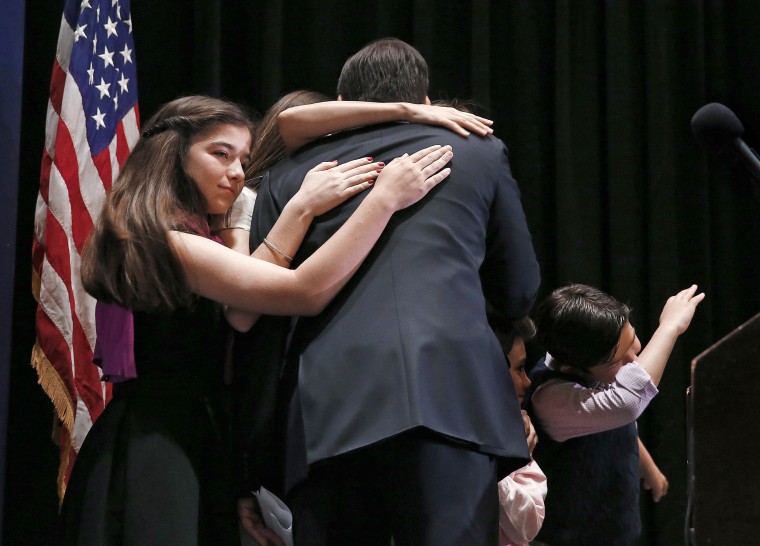Politics ain't bean bag, and not everyone can be a winner. But when candidates end their presidential bids, they usually don't use words like "drop out" or "exit."
Instead, they "suspend."
So why "suspend" when a candidate is definitely down for the count?
Like so many other things in presidential politics, it has to do with money.
Running for president is an expensive proposition, so a lot of candidates end up in debt. And a candidate can't just walk away from that debt after their presidential hopes lose their shine.
The Federal Election Commission, in fact, doesn't consider a campaign completely over until its debts are paid off, loans are settled and its cash has been transferred into other accounts.
Saying a campaign is "suspended" rather than ended can be a signal to donors to keep their contributions coming while the campaign digs itself out of the red and winds down.
Another reason to suspend? Theoretically, a suspended campaign could spring back to life if the political landscape changes dramatically.
But that's rare - it hasn't happened in decades - so if candidates are holding out hope to see their campaign come back from the dead, it's likely that the only thing they're suspending is their own disbelief.

